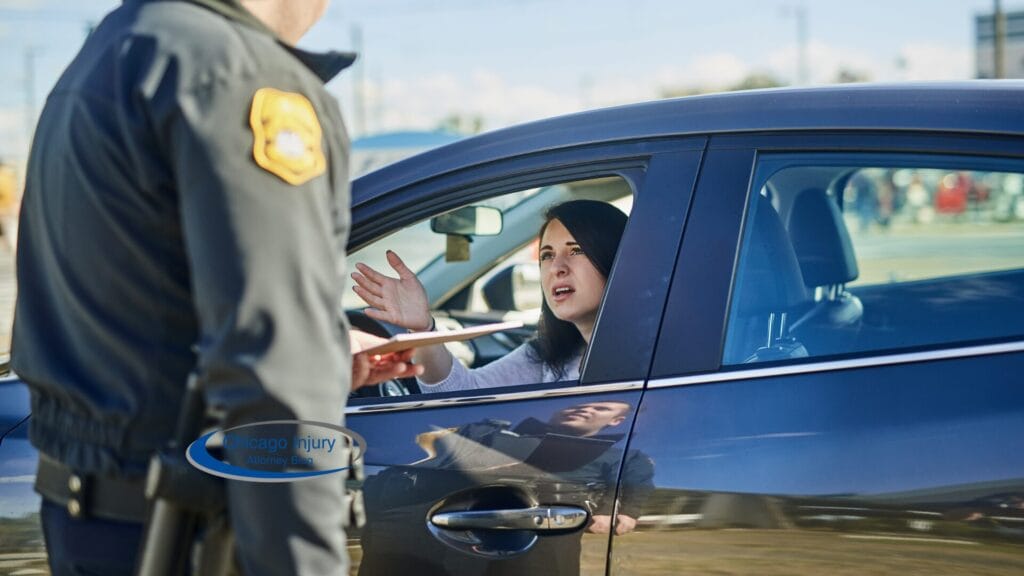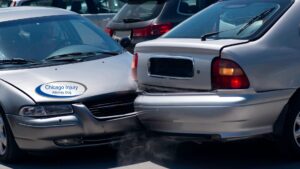DUI checkpoints are frequently observed in Illinois, particularly in urban areas such as Chicago, Rockford, and Champaign.
These DUI checkpoints serve as proactive measures aimed at deterring impaired driving; however, it is essential to comprehend one’s rights and the legal context surrounding these checkpoints.
This guide delineates the operation of DUI checkpoints, the relevant laws in Illinois, the potential consequences associated with a DUI charge, and appropriate actions to take if one faces an arrest.
Whether an individual is a driver or a victim of a DUI-related incident, understanding what to expect can significantly impact the outcome.
What are DUI Checkpoints?
DUI checkpoints, commonly referred to as , represent law enforcement operations aimed at identifying impaired drivers and enhancing public safety by deterring driving under the influence (DUI) in Illinois. These DUI checkpoints are strategically established at various locations, including urban centers such as Chicago and suburban areas like Rockford and Champaign, and they play a vital role in preventing accidents resulting from impaired driving.
The process typically involves law enforcement systematically stopping vehicles to assess the sobriety of drivers, ensuring that the methods employed conform to established legal standards.
How Do DUI Checkpoints Work?
DUI checkpoints are implemented through a systematic process in which law enforcement officials conduct traffic stops using a random selection method to evaluate drivers for signs of intoxication. This method ensures fairness and mitigates the risk of profiling, as officers typically stop a predetermined number of vehicles at regular intervals or specific locations.
Upon stopping a vehicle, law enforcement personnel assess the driver’s behavior and movements for indicators of impairment. Should suspicions arise, the officer may conduct field sobriety tests—such as the walk-and-turn test or the one-leg stand—to further evaluate the driver’s coordination and balance.
The primary objective of these checkpoints is to deter impaired driving, enhance public safety, and ultimately decrease the incidence of alcohol-related accidents on the roads.
What Are The Laws Regarding DUI Checkpoints In Illinois?
In Illinois, the legality of DUI checkpoints is regulated by both state laws and constitutional protections, particularly concerning the Fourth Amendment, which safeguards against unreasonable searches. These regulations ensure that, while public safety remains a priority, the rights of individuals are also upheld during DUI checkpoints.
The Illinois statutes, including 625 ILCS 5/11-501, delineate the legal framework within which law enforcement must operate, ensuring that checkpoints are conducted in a manner that does not violate citizens’ constitutional rights.
What Are The Consequences of a DUI Charge in Illinois?
Facing a DUI charge in Illinois can result in significant legal consequences, including fines, license suspension, and potential imprisonment, contingent upon the severity of the offense and the number of prior DUI arrests.
The legal repercussions can differ markedly based on whether it is a first-time offense or a subsequent charge, with escalating penalties for repeat offenders. It is imperative for Illinois drivers to understand how DUI charges can impact their driving privileges, insurance rates, and personal freedom.
Therefore, seeking the counsel of qualified DUI defense attorneys is essential for navigating this complex legal landscape.
What Are The Penalties for a First-Time Offense?
A first-time DUI offense in Illinois may result in a variety of penalties, which can include fines, mandatory community service, and the possibility of a brief jail sentence. The specific consequences depend on factors such as blood alcohol content (BAC) and whether any accidents occurred.
It is imperative for offenders to understand the potential legal ramifications they may face. Typically, fines for a first offense can total several thousand dollars, and the duration of license suspension may extend up to six months.
Additionally, offenders are frequently mandated to participate in alcohol education programs designed to enhance awareness and prevent future incidents. Comprehending these penalties not only assists individuals in navigating the legal framework more effectively but also underscores the significance of making responsible choices to safeguard their future.
What Are The Penalties for a Second Offense?
For drivers in Illinois facing a second DUI offense, penalties are considerably more severe. These may include extended license suspensions, increased fines, mandatory jail time, and compulsory participation in alcohol treatment programs.
These heightened penalties demonstrate the state’s dedication to reducing repeat offenses and enhancing public safety. Typically, individuals may encounter a minimum jail sentence of five days, with certain cases potentially resulting in a maximum of one year of incarceration.
Fines may escalate to approximately $2,500, serving as a financial deterrent. Additionally, community service requirements are imposed, mandating offenders to contribute a specified number of hours to local organizations.
The legal ramifications of repeat violations are substantial, emphasizing the importance for individuals in this situation to consult experienced DUI defense attorneys. These professionals can navigate the complexities of the law and may help in mitigating the consequences.
What Are The Penalties for a Third Offense?
A third DUI offense in Illinois is categorized as a felony and carries substantial penalties. These include significant incarceration, substantial fines, and permanent revocation of driving privileges. Additionally, individuals may be required to complete mandatory alcohol education programs.
The implications of facing such a serious charge extend well beyond the immediate penalties. A felony conviction can result in long-lasting effects that profoundly affect one’s personal and professional life. Individuals may confront a minimum sentence of three years in prison, with the potential for longer sentences if aggravating circumstances are present.
Following release, the stigma associated with a felony conviction can considerably hinder job search efforts, as many employers conduct background checks and may be reluctant to hire someone with such a record. This situation can lead to financial instability and restricted career advancement opportunities, compounding the challenges faced by individuals striving to rebuild their lives.
What Are The Rights of Drivers at DUI Checkpoints?
Drivers at DUI checkpoints in Illinois maintain specific constitutional rights, including the right to refuse unreasonable searches. This right is safeguarded under the Fourth Amendment, ensuring that law enforcement cannot infringe upon individual privacy without justifiable cause.
Do Drivers Have to Answer Questions at DUI Checkpoints?
At DUI checkpoints, drivers are not legally obligated to respond to inquiries posed by law enforcement officers; however, they may opt to provide basic identifying information.
Understanding this right can significantly influence the nature of an interaction with law enforcement. While a driver has the option to remain silent, it is essential to approach the encounter with composure and respect. Such a demeanor not only assists in diffusing potential tension but also safeguards individual rights during what can be a stressful situation.
It is important to recognize that declining to answer certain questions may raise suspicions, potentially resulting in increased scrutiny or even detention.
Striking a balance between asserting one’s rights and maintaining a respectful attitude can often lead to a more favorable outcome.
Do Drivers Have to Take Field Sobriety Tests at DUI Checkpoints?
Drivers in Illinois have the legal right to decline field sobriety tests at DUI checkpoints; however, such a decision may result in automatic license suspension or other legal repercussions.
These tests typically consist of a series of physical and cognitive assessments aimed at evaluating an individual’s level of impairment, which may include tasks such as walking in a straight line or tracking a moving object with the eyes.
The potential consequences are significant, as refusing these tests may imply guilt and complicate subsequent legal proceedings. While it is crucial to exercise one’s rights, individuals must carefully consider the immediate decision in light of the broader legal implications, which can range from monetary fines to the establishment of a criminal record.
Ultimately, having a clear understanding of the nature of these tests and the consequences of refusal can give the power to drivers to make informed decisions in challenging circumstances.
Do Drivers Have to Take a Breathalyzer Test at DUI Checkpoints?
While drivers retain the right to refuse a breathalyzer test at DUI checkpoints, such a refusal can result in significant legal consequences, including automatic license suspension under Illinois law.
In fact, the refusal may lead to immediate penalties that individuals may not fully understand. Typically, law enforcement officials inform the driver of the potential ramifications of their decision, which may encompass not only a suspension but also increased fines and complications in criminal proceedings.
It is essential to understand what a breathalyzer test entails, as it serves as a primary tool for determining blood alcohol content levels and ensuring road safety. Individuals who decline the test may be unaware that such a decision could be interpreted as an admission of guilt, potentially complicating their legal situation.
Therefore, it is imperative to weigh the options carefully to make an informed decision at that critical moment.
What Should You Do If You Are Arrested at a DUI Checkpoint?
If an individual is arrested at a DUI checkpoint, it is imperative to remain composed and to fully understand their rights. Seeking legal representation to navigate the complexities of the situation and mitigate potential penalties is essential.
First, it is advisable to document the experience as soon as possible. This includes taking detailed notes on the events leading to the arrest, such as the time, location, interactions with law enforcement, and the circumstances surrounding the checkpoint. This information can be crucial for the defense.
Promptly reaching out to an experienced DUI defense attorney is vital, as they can provide guidance specific to the individual’s situation, assist in understanding the legal process, and represent their interests in court.
Additionally, familiarizing oneself with the local laws regarding DUI offenses is beneficial, as this knowledge give the power tos individuals to make informed decisions in the aftermath of the arrest.
How Can a Personal Injury Attorney Help in a DUI Case?
A personal injury attorney offers essential legal representation in DUI cases, assisting clients in comprehending their rights, navigating the complexities of the legal system, and striving for reduced charges or alternative penalties.
Can a Personal Injury Attorney Help Reduce DUI Charges?
Personal injury attorneys with expertise in DUI defense are adept at assisting clients in reducing DUI charges through a thorough examination of the legality of the initial traffic stop, the accuracy of breathalyzer tests, and the methodologies employed during field sobriety assessments.
Along with these strategies, they conduct a meticulous analysis of the circumstances surrounding the arrest, carefully scrutinizing whether proper protocols were adhered to and if any rights were infringed upon. By presenting compelling evidence and consulting experts when necessary, these attorneys seek to establish reasonable doubt in the prosecution’s case.
They recognize that a well-informed and strategic approach can substantially influence the outcome, underscoring the importance of comprehensive legal representation.
With an emphasis on ensuring a fair trial, these professionals work diligently to safeguard their clients’ rights and explore every viable avenue for the dismissal or reduction of charges.
Can a Personal Injury Attorney Help with License Suspension?
In DUI cases, personal injury attorneys play a critical role in appealing license suspension decisions, striving to reinstate driving privileges for their clients based on the specific details of each case.
The process typically commences with a thorough review of the circumstances surrounding the license suspension. Attorneys meticulously analyze prior records, gather relevant evidence, and identify any procedural errors that may have occurred during the initial hearing.
Through careful preparation of appeals, attorneys can implement effective negotiation strategies with the appropriate authorities to advocate for a favorable outcome. By leveraging their legal expertise, these professionals can persuasively argue for the reinstatement of driving privileges, highlighting the client’s responsible behavior and commitment to adhering to applicable laws.
Consequently, clients receive a customized approach aimed at mitigating the repercussions of their circumstances.
Can a Personal Injury Attorney Help with Expungement of DUI Charges?
Personal injury attorneys play a vital role in guiding clients through the expungement process for DUI charges, thereby helping to alleviate the long-term implications of a DUI conviction on both their personal and professional lives.
Navigating the intricate legal landscape surrounding expungement can be overwhelming, particularly for individuals facing the stigma associated with a DUI record. An experienced attorney not only assists in determining eligibility criteria but also provides essential guidance on the proper filing of the requisite paperwork. This representation is crucial, as it ensures that clients fully understand their rights and the implications of their conviction on various aspects of life, including employment opportunities and personal relationships.
By obtaining expert legal counsel, individuals can significantly enhance their likelihood of achieving a successful expungement, thereby facilitating a fresh start and enabling them to move forward without the burden of past mistakes.
What Are the Next Steps After Being Charged with a DUI in Illinois?
After being charged with a DUI in Illinois, individuals should promptly take steps to secure legal representation, understand their rights, and prepare for the forthcoming legal proceedings to effectively respond to the charges.
This process begins with identifying an experienced attorney specializing in DUI cases, as they can adeptly navigate the complex legal landscape and provide essential guidance.
It is vital to familiarize oneself with the specific legal rights afforded in such situations, which enables a more informed approach during interactions with law enforcement and court officials.
Preparation for court appearances should involve gathering all necessary documentation, such as incident reports and witness statements, while also considering potential defenses or plea options.
Each step taken during this critical period can significantly influence the outcome of the case.
Frequently Asked Questions
What are Chicago DUI checkpoints and how do they work?
Chicago DUI checkpoints are locations set up by law enforcement to check for drivers who may be operating a vehicle under the influence of alcohol or drugs. These checkpoints require all vehicles passing through to stop and briefly speak with law enforcement officers. They are typically set up in high-traffic areas and at times when DUI incidents are most likely to occur.
Are Chicago DUI checkpoints legal?
Yes, Chicago DUI checkpoints are legal. The Supreme Court has ruled that these checkpoints do not violate the Fourth Amendment’s protection against unreasonable searches and seizures, as long as they are conducted according to strict guidelines. These guidelines include having a valid reason for the checkpoint, such as a high number of DUI incidents in the area, and ensuring that all vehicles are stopped without discrimination.
What should I do if I am stopped at a Chicago DUI checkpoint?
If you are stopped at a Chicago DUI checkpoint, it is important to remain calm and follow the instructions of the law enforcement officers. You may be asked to show your driver’s license and registration, as well as answer a few questions about your current level of sobriety. It is important to be respectful and cooperative, as any hostile or uncooperative behavior could lead to further suspicion.
Can I refuse to go through a Chicago DUI checkpoint?
While you technically have the right to refuse to go through a Chicago DUI checkpoint, doing so may result in further suspicion from law enforcement. It is important to remember that these checkpoints are legal, and refusing to comply could lead to a more thorough investigation or even arrest. It is best to simply follow the instructions of the officers and proceed through the checkpoint.
What are the consequences of a DUI at a Chicago checkpoint?
The consequences of a DUI at a Chicago checkpoint can be severe. These may include fines, license suspension, and even jail time. In addition, a DUI conviction can have a significant impact on your personal and professional life, as well as your finances. It is important to take these checkpoints seriously and always make responsible decisions when it comes to drinking and driving.
Do I need a lawyer if I am charged with a DUI at a Chicago checkpoint?
It is highly recommended to seek the help of a lawyer if you are charged with a DUI at a Chicago checkpoint. A lawyer can help you understand your rights, navigate the legal process, and potentially reduce or dismiss the charges against you. They can also advise you on the best course of action to take in order to minimize the impact of a DUI charge on your life. It is important to act quickly and consult with a lawyer as soon as possible after being charged with a DUI.





